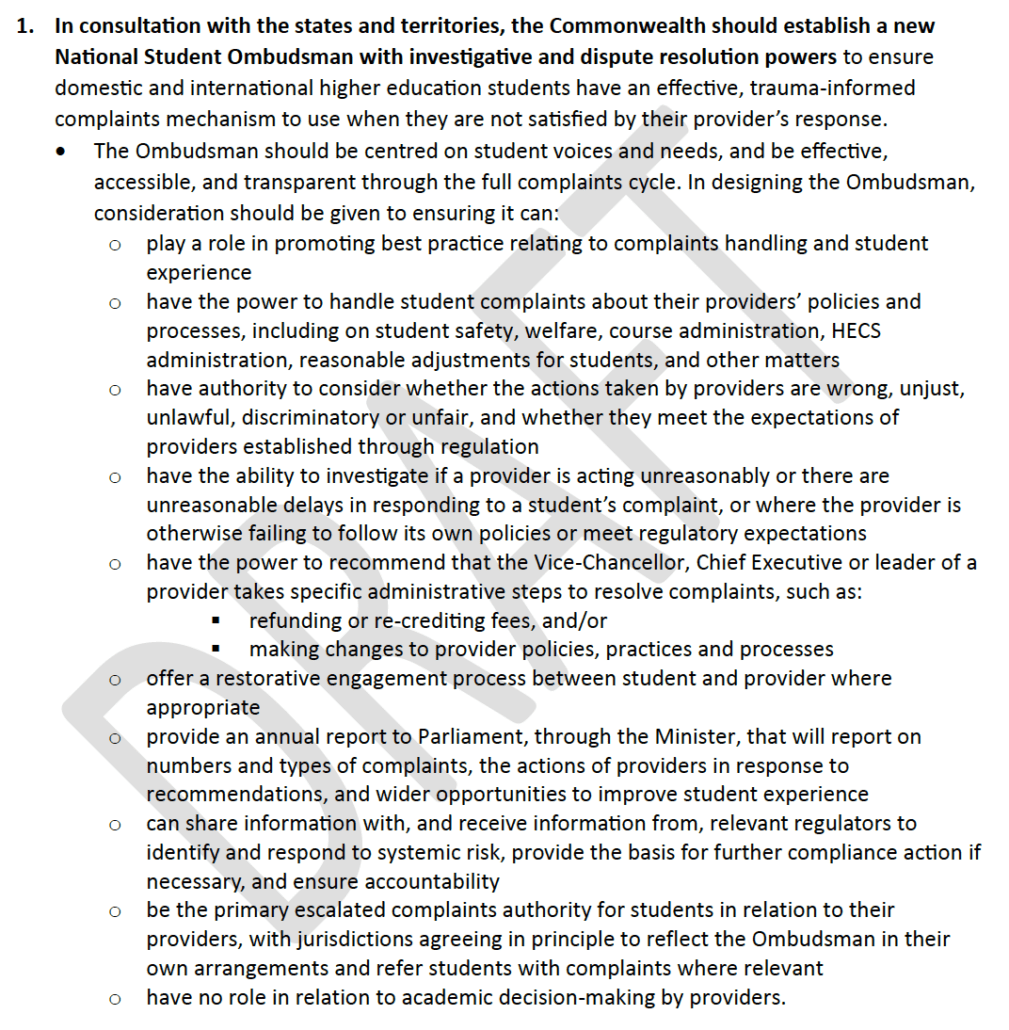
Why the government is adding to the regulatory burden in higher education
Universities Accord Panel Chair, Prof. Mary O’Kane, admitted at last week’s TEQSA conference that the Panel had not been “focussed enough on the regulatory burden” of the recommendations in their interim report, and that they have been “more careful this time” (in crafting their recommendations in the Panel’s final report).
The Panel was clearly not prepared for the very detailed, hands-on, approach the Australian government has taken to the changes it is introducing to ensure universities and other higher education providers (HEPs) offer what the government considers to be appropriate levels of academic and other support to students and how universities and HEPs address gender-based violence on their campuses.
The government was clearly not satisfied with the many university submissions on student support issues which attempted to offer reassurance that institutions were providing appropriate levels of support. Instead it has introduced draft Student Support Guidelines which require 14 different elements to be included in the provider’s student support policy, including the provider’s “processes to proactively offer students access to (the institution’s support services)” as well as “information on the resourcing that the provider has allocated to adequately support all students who are identified as requiring additional assistance, including how those resources will be adjusted to meet demand.” And then there is the proposed annual reporting to government across 10 different factors.
Last week (following input from State and Territory Ministers) the Australian government released a Draft Action Plan Addressing Gender-based Violence in Higher Education which includes a proposal for a new independent National Student Ombudsman.
The Department of Education notes that the issue of student safety was highlighted by the Universities Accord Panel in their interim report. It was also a key area of focus in the Senate’s Legal and Constitutional Affairs References Committee’s Inquiry into Australia’s current and proposed sexual consent laws.
It was in the context of the Senate Inquiry that we learned about the $1.65m in funding the Department of Social Services paid to Universities Australia for a communications campaign focussed on the prevention of sexual harm at universities. The decision not to proceed with the campaign and instead in March 2023 to issue updated Sexual Harm Response Guidelines (now complemented by a Charter on Sexual Harm released this month) was clearly not considered sufficient by either sexual assault survivors or governments – and hence another suite of very detailed guidelines has been drafted for universities and other HEPs to comply with – with oversight by an independent Student Ombudsman with significant powers:

Both the Draft Action Plan and the Draft Guidelines represent a HUGE increase in government involvement in institutional practices and hence much greater scrutiny and oversight by government. While the Universities Accord Panel could have written ‘tighter’ recommendations in their interim report – the reality is that universities have been out of step with community and government expectations – and hence the government’s response and the additional regulatory burden now being imposed on the sector.
As Prof. Theo Farrell, incoming Vice Chancellor of La Trobe University, said at the TEQSA conference
“we need to have a truly student centric lens in what we do… doing more work around students as partners, embedding students as true partners across our entire governance ecosystem and universities, empowering students to have more voice, listening to students, co-designing with students our policies, co-designing their experiences… And the other I think is universities (need to have) a caring culture towards students… How do we support staff through the process so we can do best by our students… I really welcome the draft action plan on gender based violence and I think framing this in terms of gender based violence as a societal challenge is incredibly helpful and this is something obviously that Universities Australia has recognised itself and I think UA has done some good work on this… But I also think we need to recognise as a sector we have not responded with sufficient collective vigour to satisfy key stakeholder groups and the government. And so we need to do better…”




